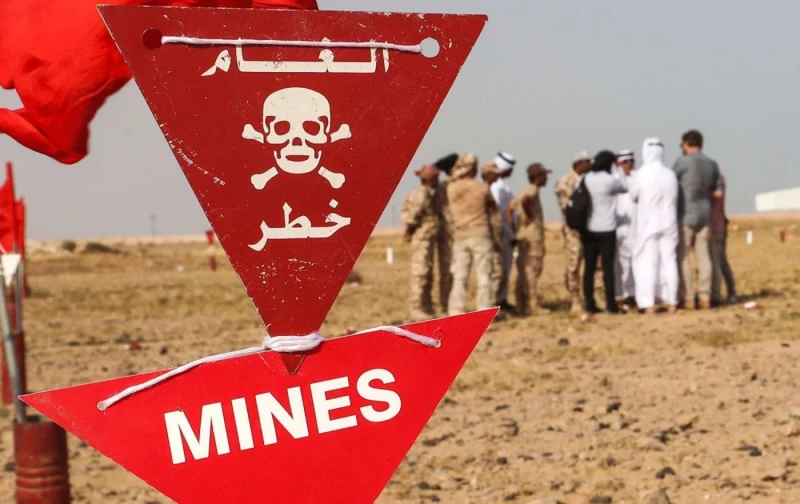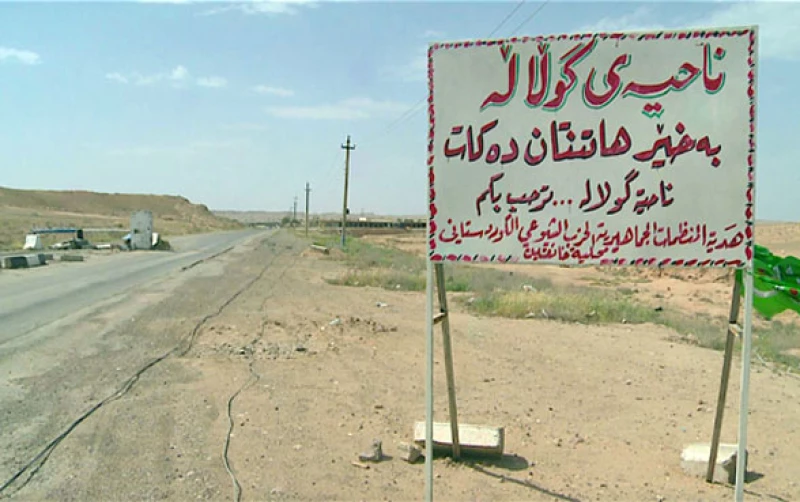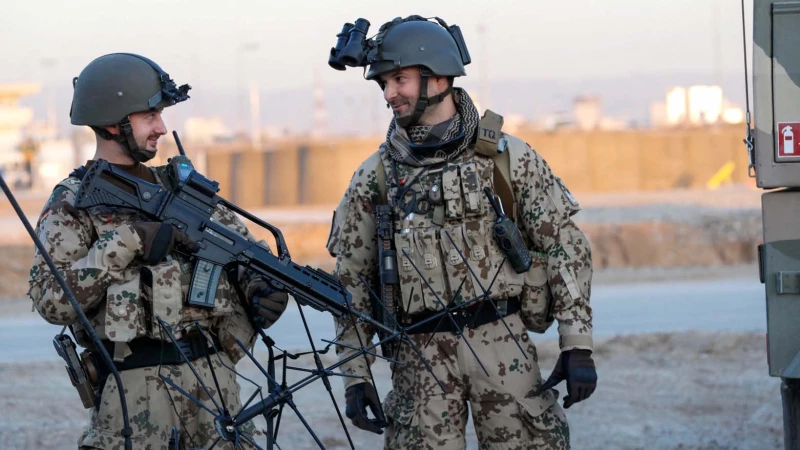HALABJA, Kurdistan Region of Iraq - Kurdistan Region Prime Minister Masrour Barzani on Wednesday addressed several key local and regional issues during a forum in Sulaimani, including the Region’s position amid ongoing negotiations between Washington and Tehran over the nuclear issue.
During a one-on-one interview at the 9th Sulaimani Forum held at the American University of Iraq, Sulaimani (AUIS), Prime Minister Barzani stressed the importance of Kurds maintaining good relations with both Washington and Tehran amid the rising tensions.
“Kurds do not need to find themselves in a position where they have to settle with one side or the other, we can respect our relations with Iran and with the US as well,” said the Kurdish premier.
The Kurdistan Region shares strong relations with both Tehran and Washington across various sectors.
Iran and the US successfully completed the first round of indirect talks in the Omani capital Muscat over the nuclear issue on Saturday following weeks of strong rhetoric against each other and Donald Trump threats of using military force if the two cannot reach a deal. A second round of talks has been set for Saturday, April 19.
Resuming Kurdish oil exports
Addressing the possibility of resuming Kurdish oil exports after a two-year halt, Barzani noted that Erbil, Baghdad, and Ankara have agreed to restart the process, but that the issue now is coming to an understanding with the international oil companies (IOCs) on setting a production cost.
“We have tried everything we can to come to a mutual understanding to resume Kurdistan oil exports through Turkey, with [Iraq’s State Organization for the Marketing of Oil] SOMO being the seller. We have agreed on all those points, what remains is the agreement of the [international oil] companies,” he said.
Exports of the Kurdistan Region’s oil through the Turkish Ceyhan pipeline, where part of Kirkuk’s oil was also exported, were halted in March 2023 after Ankara lost a case against Baghdad in a Paris-based arbitration court. The case accused Ankara of breaching a 1973 agreement by allowing Erbil to start selling oil independent of Baghdad.
The halt in exports has dealt a major blow to Iraq and the Kurdistan Region's economy, with well-over $20 billion in lost revenue to date.
“These companies ask for guarantees, part of the problem is specifying production costs, this expense has to be provided, if the Kurdistan Region oil does not go through us, meaning SOMO exports it, this mechanism has to be found,” the Kurdish premier added.
The Iraqi Parliament passed an amendment to the Federal Budget Law in early February, which obliges Baghdad to reimburse Erbil for the production and transportation cost of one barrel of oil at the average cost of production and transportation of the federal oil ministry.
The cost was previously valued at $6, which the IOCs repeatedly criticized as being way lower than their actual expenses. According to the amendments, the IOCs would now be paid $16 to in the first phase, before an independent technical consultant team is assigned to assess the extraction cost.
The international oil producers have repeatedly stated that the terms of their existing contracts and the economic models within them must be respected before they resume the process.
Developments in Syria
Addressing the developments in Syria and the status of Kurds in the country after the fall of Bashar al-Assad, Barzani said “our brothers and sisters in Syria can benefit from the Kurdistan Region's experience.”
“They can benefit from our good actions and not repeat our mistakes.”
After a rebel offensive in early December, spearheaded by Hayat Tahrir al-Sham (HTS), brought the Assads’ five-decade-long rule to an end, Kurdish forces and authorities in northeast Syria have been working toward presenting a united front before the new Damascus government. Erbil has played a mediatory role between the Kurdish groups in Syria.
The Kurdish premier claimed that federalism “does not weaken” the authority of a country, instead it is an admittance to “the differences between the components of a country, who try to complement each other,” adding that “if federalism is interpreted as breaking away, then the intention is not agreement.”
On March 10, Mazloum Abdi, commander of the Syrian Democratic Forces (SDF) signed an agreement with Syria's Interim President Ahmed al-Sharaa to officially integrate the Kurdish-led forces and all other institutions in northeast Syria into the Syrian state institutions.
Kurdish authorities have repeatedly criticized Damascus for the lack of inclusion of other ethnic and religious groups in the transitional process.
“The ground is too fertile now to create an inclusive government in Syria,” said Barzani, stressing that Kurds can take part in “building a democratic and free Syria.”
Peace process in Turkey
Regarding the developments in Turkey and the prospect of peace between the Kurdistan Workers’ Party (PKK) and the Turkish state, Barzani hailed the progress thus far as “positive and good,” emphasizing that they can be “effective too” depending on how the process is handled going forward.
The prime minister noted however that “there might be parties whose interests do not align with the success of the process.”
PKK leader Abdullah Ocalan in late February, called on the group to disarm and transition to a dialogue-based discourse with Turkey as opposed to military struggle.
Ocalan’s call came after visits from delegations of the pro-Kurdish Peoples' Equality and Democracy (DEM) Party, who mediated between the two adversaries to bring about a final solution to the decades-long enmity.
A government for the people
Asked about efforts toward the formation of the Kurdistan Regional Government’s (KRG) tenth cabinet, Barzani, also a senior member of the ruling Kurdistan Democratic Party (KDP), said that talks are ongoing with the Patriots Union of Kurdistan (PUK) and that good understandings have been reached, but there are details that need to be sorted out before the process is completed
“Regional dynamics and changes require that we must be united, be unanimous and have a strong stance,” stated Barzani.
“The government is a factor in implementing an agenda to serve the people… If not, then what is the government’s job?”
The KDP and PUK emerged as the main parties from the October 20 parliamentary elections, gaining 39 and 23 seats respectively. The Kurdistan Region’s newly-elected members of parliament were sworn in early December, officially commencing their legislative duties.
The parties have been engaged in government formation talks for months.
MyAccount
Speaking about the MyAccount initiative, Barzani said that the project aims to serve the interests of the people and that its opponents have no excuse in objecting it apart from attempting to promote “false propaganda.”
"I am not saying everyone should support MyAccount, but no one should be allowed to get in the way of the government's plans to continue this project. I hope this continues and we can all together serve the people of Kurdistan," he added.
MyAccount is an initiative by the Kurdistan Region’s 9th cabinet that aims to modernize the method by which civil servants receive their salaries, enhancing financial stability and granting beneficiaries access to a diverse array of financial services, including savings accounts.

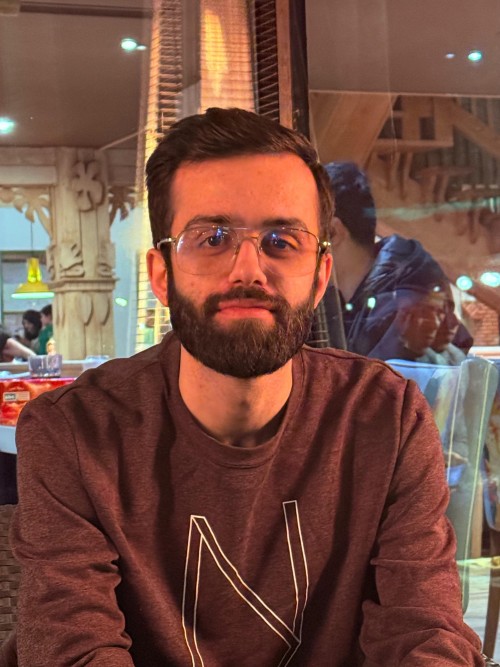
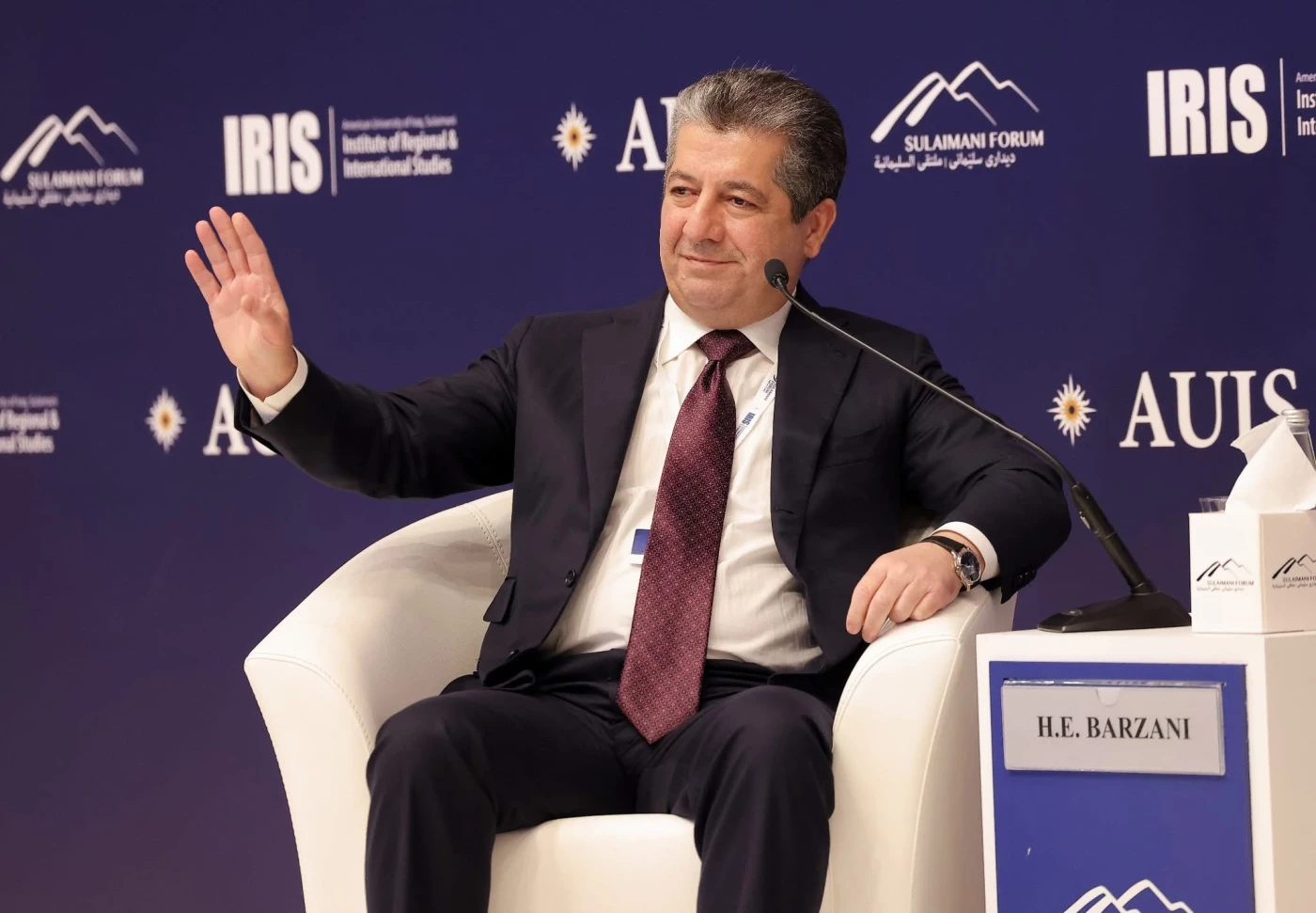
 Facebook
Facebook
 LinkedIn
LinkedIn
 Telegram
Telegram
 X
X
